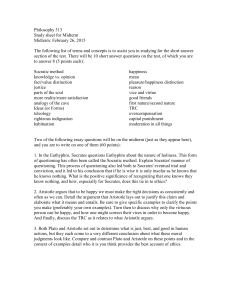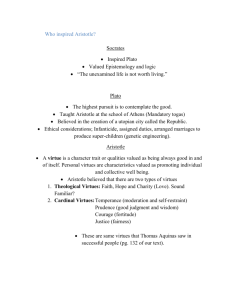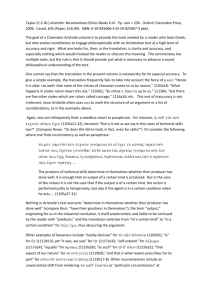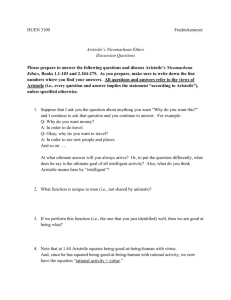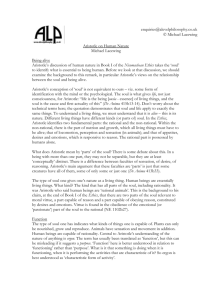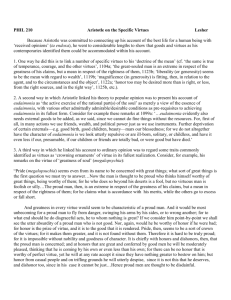Worksheet
advertisement
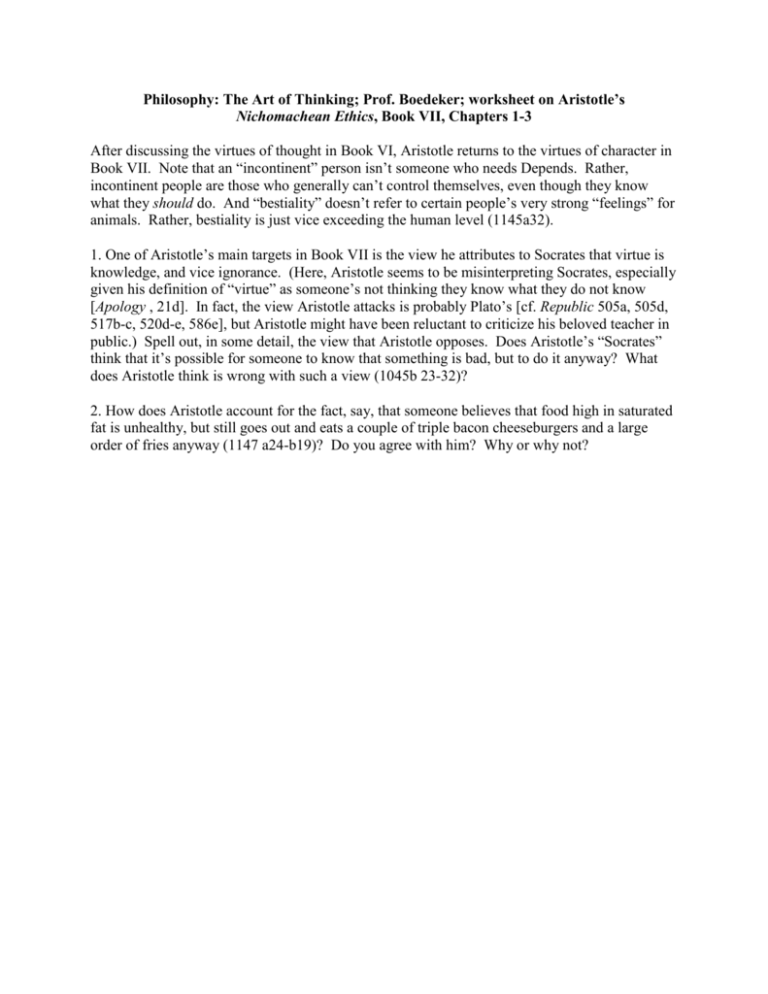
Philosophy: The Art of Thinking; Prof. Boedeker; worksheet on Aristotle’s Nichomachean Ethics, Book VII, Chapters 1-3 After discussing the virtues of thought in Book VI, Aristotle returns to the virtues of character in Book VII. Note that an “incontinent” person isn’t someone who needs Depends. Rather, incontinent people are those who generally can’t control themselves, even though they know what they should do. And “bestiality” doesn’t refer to certain people’s very strong “feelings” for animals. Rather, bestiality is just vice exceeding the human level (1145a32). 1. One of Aristotle’s main targets in Book VII is the view he attributes to Socrates that virtue is knowledge, and vice ignorance. (Here, Aristotle seems to be misinterpreting Socrates, especially given his definition of “virtue” as someone’s not thinking they know what they do not know [Apology , 21d]. In fact, the view Aristotle attacks is probably Plato’s [cf. Republic 505a, 505d, 517b-c, 520d-e, 586e], but Aristotle might have been reluctant to criticize his beloved teacher in public.) Spell out, in some detail, the view that Aristotle opposes. Does Aristotle’s “Socrates” think that it’s possible for someone to know that something is bad, but to do it anyway? What does Aristotle think is wrong with such a view (1045b 23-32)? 2. How does Aristotle account for the fact, say, that someone believes that food high in saturated fat is unhealthy, but still goes out and eats a couple of triple bacon cheeseburgers and a large order of fries anyway (1147 a24-b19)? Do you agree with him? Why or why not?


